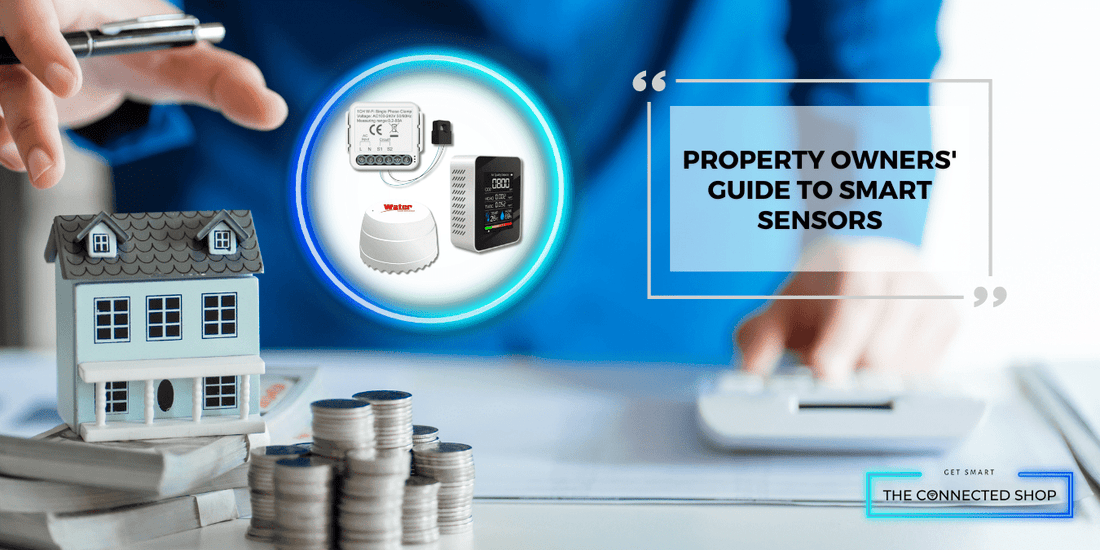Energy bills seem to climb higher every year, and as a property owner, finding ways to save can feel like an endless challenge. The good news? Smart sensors are here to make energy efficiency easier and more effective than ever. These small but powerful devices can track how much energy your property uses, pinpoint areas of waste, and even make real-time adjustments to help you cut costs without lifting a finger.
In this guide, we’ll dive into how smart sensors can help you save money, reduce waste, and make your property more eco-friendly. Whether you want to lower your bills, attract tenants who value sustainability, or simply take control of your energy usage, smart sensors are a simple, practical solution to get you there.
Let’s explore how this technology works and why it’s quickly becoming a must-have for property owners looking to stay ahead.
The Benefits of Smart Sensors for Property Owners
Reduced Energy Costs Through Optimized Usage
Smart sensors provide property owners with real-time insights into energy consumption, making it easy to identify and address inefficiencies. For instance, smart energy meters track usage patterns and help you optimize heating, cooling, and appliance usage to reduce waste. These tools allow you to control energy consumption without sacrificing comfort, ultimately lowering your utility bills.
Increased Property Value with Modern, Energy-Efficient Technology
Equipping your property with smart sensors designed for energy efficiency can enhance its market appeal. Buyers and tenants increasingly prioritize modern, connected solutions that provide both savings and convenience. Installing devices like smart energy meters or smart temperature sensors positions your property as innovative and future-ready, adding long-term value while aligning with the demand for energy-efficient homes and buildings.
Attracting Eco-Conscious Tenants or Buyers
Sustainability is an essential consideration for many tenants and buyers. Properties featuring energy-efficient technologies, such as smart energy meters and smart water leak detectors, appeal to individuals who value reduced environmental impact. These devices showcase your commitment to green living, which can help you stand out in a competitive market.
Types of Smart Sensors for Energy Efficiency
Smart Energy Meters
Smart energy meters monitor energy consumption in real-time, providing detailed insights into usage patterns. They help property owners identify high-energy-consuming areas or devices and adjust settings to optimize energy use. For example, a property owner can use the data to pinpoint peak consumption times and implement strategies to lower electricity bills.
Temperature and Humidity Sensors
These sensors measure and monitor indoor temperature and humidity levels, working seamlessly with HVAC systems to maintain comfort while reducing energy waste. By automatically adjusting heating and cooling, they ensure efficient energy use, such as reducing HVAC output in unoccupied rooms.
Smart Plug and Appliance Sensors
Smart plugs and appliance sensors track the energy consumption of specific devices and allow remote control of plugged-in appliances. They prevent waste by shutting off unused devices or scheduling operation during off-peak hours. For instance, they can ensure a space heater only runs when needed or during lower energy rate periods.
Smart Water Leak Detectors alert property owners to leaks, preventing waste and reducing energy costs in systems that heat water. They are particularly useful for identifying hidden leaks that could drive up energy bills unnecessarily.
Smart Thermostats with Integrated Sensors
Smart thermostats combine advanced sensors to monitor and adjust temperature settings automatically, balancing comfort and energy efficiency. For example, they can maintain ideal temperatures during the day and lower energy use at night or when the property is unoccupied.
How to Get Started with Smart Sensors
Getting started with smart sensors may feel overwhelming at first, but with the right approach, you can easily integrate these devices into your property for maximum energy efficiency and added benefits. Here's how to begin:
Assess Your Property’s Needs
Before purchasing smart sensors, evaluate your property to determine where energy inefficiencies might exist. Look at high-consumption areas like heating, cooling, lighting, and water systems. For example, an older HVAC system might benefit from smart temperature sensors, while frequent water usage areas could use leak detection sensors. Identifying specific pain points will help you prioritize the right solutions.
Choose Sensors That Align with Your Goals
Select smart sensors based on your energy-saving objectives. If reducing electricity bills is your primary focus, start with smart energy meters or smart plugs. For properties prone to water damage, water flow and leak detection sensors are a smart choice. Matching the sensors to your goals ensures you get the most value from your investment.
Explore Potential Savings on Insurance
Many insurance companies offer discounts for properties equipped with smart sensors that reduce risks. Leak detection sensors can lower premiums by minimizing water damage claims, while temperature sensors help prevent costly HVAC failures. Check with your provider to see how installing smart sensors can save you money beyond energy costs.
Start Small and Scale Up
If you’re new to smart sensors, start with one or two key devices in high-impact areas. For instance, a smart energy meter or thermostat can deliver immediate savings and insights. As you become more familiar with the technology, you can expand to include additional sensors to optimize other areas of your property.
Professional vs. DIY Installation
Depending on your comfort level, you can either install sensors yourself or hire a professional for more complex systems. Many smart sensors are designed for easy installation, but properties with integrated systems may benefit from expert guidance to ensure seamless functionality.
By following these steps, you can confidently incorporate smart sensors into your property, paving the way for greater energy efficiency, reduced costs, and even insurance savings.
Conclusion
Smart sensors are more than just a trend—they're a practical, forward-thinking solution for property owners looking to save money, improve energy efficiency, and enhance their property's value. By offering real-time insights and automated controls, these devices empower you to take control of energy consumption without added effort.
Whether you’re starting small with a smart energy meter or planning a comprehensive upgrade, integrating smart sensors into your property is an investment in both financial savings and sustainability. With their ability to reduce waste, attract eco-conscious tenants or buyers, and even lower insurance premiums, smart sensors are a smart choice for property owners who want to stay ahead in today’s competitive market.
Take the first step today, and discover how these small devices can deliver big results for your property and your bottom line.





